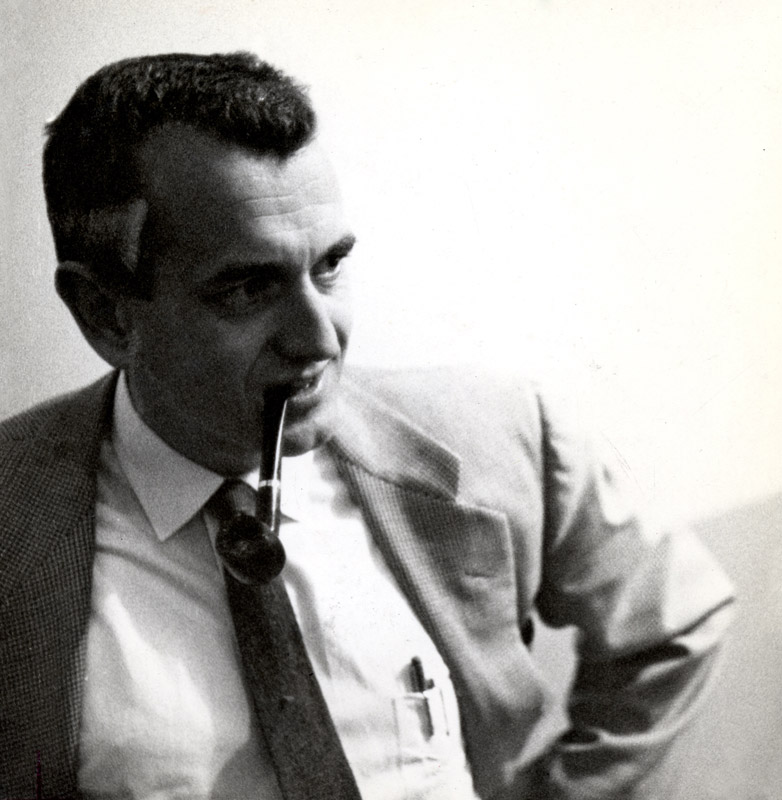Letters
Honoring Carl Degler

Carl N. Degler taught history at Vassar from 1952 until 1968, when he accepted an appointment at Stanford University. He retired in 1990, when today’s undergraduates were just learning to read.
Professional recognition came after he left Vassar: a Pulitzer Prize, the Presidencies of the Southern Historical Association, the Organization of American Historians, and the American Historical Association. Most of his books, too, appeared during his Stanford years: The Other South; Place Over Time; At Odds: Women and the Family in America; In Search of Human Nature; and the Pulitzer-winning Neither Black nor White. But he spent his formative years as a teacher and scholar at Vassar, and his “thank you” to the College appeared in William Leuchtenberg (ed.) American Places: Encounters with History. The essay, reprinted in the online Vassar Encyclopedia, is remarkable as a mature scholar’s tribute to the community that shaped his life’s work.
At Vassar, Degler created History 265, “American Cultural History,” and History 362, “The History of the South.” His first book, Out of Our Past, evolved from History 265. True to Vassar’s traditions, Degler respected his students as colleagues in historical inquiry. His weekly syllabi and demanding hour exams were legendary, and his campus nickname, “D+ Degler,” struck terror into many a student who had yet to experience his kindness and his humanity. In later years, Degler questioned Vassar’s reliance on discussion in history courses, but he was an unparalleled discussion leader, uniquely able to weave individual students’ contributions together into coherent interpretations which even years later, read in surviving notebooks from his classes like carefully-framed paragraphs.
After Degler died on December 27, 2014, at the age of 93, obituaries focused on his commitment to what the Washington Post called “misunderstood or underrepresented groups” in America. Accolades from students and colleagues cited his collegiality and his generosity in furthering the careers of younger scholars. As one of his Vassar students and advisees, I experienced that generosity first hand over more than a half-century. I remain forever grateful for the privilege of knowing him.
Elizabeth Studley Nathans ‘62
Wayland, Massachusetts
Writes and Wrongs
Thank you, Professor Qiu, for making sure these Chinese women’s stories are heard [Fall 2014]! When I lived in South Korea from 2006 through 2011, Korean women who had been sex slaves met in front of the Japanese Embassy in Seoul every Wednesday seeking an apology to no avail, and, of course, each year their numbers dwindled.
I've never understood why Japan couldn't muster the courage to admit these egregious wrongs. Thanks to you and others who have written about these women, younger generations will not be ignorant.
Louisa Frank ’66
Billings, Montana
Parental Pride
At the end of her commencement speech, in response to a resounding standing ovation, Sau Lan Wu ’63 added something that spoke more forcefully to thousands of parents than any other part of her speech. As the applause reached a crescendo she said, “Thank you, thank you! I will tell my mother.”
Her allusion to the pride a parent feels at the moment of commencement was both endearing and the perfect footnote to her long list of technical accomplishments.
It is interesting how often the offhand comment that is not reflected in the printed text of a commencement speech [Fall 2014] speaks with greater force than many of the words that were so painstakingly crafted. Her final words brought many tears. At the end of the day, we educate our children because we love them and, so many years later, to hear the love between a parent and child echo across the lake was both comforting and inspiring.
Vassar students are taught that footnotes are important. Hers was not included in the Quarterly but it would have been wonderful if it had been.
Bob Burke ’P14
Barrington, Rhode Island
Remembering Juliet
I was so happy to read of the rebirth of the Juliet [Fall 2014]! While it is too bad that it was not sustainable as a neighborhood movie house, I'm pleased to read that future Vassar generations will learn of its past and enjoy its current incarnation.
I must share a vivid memory of the Juliet from about 1986. I went to see Down and Out in Beverly Hills, with Andrew Solum ’89 and possibly Lynne Stern Elkes ’89 (I forget). At one point in the movie, Tracy Nelson, who played the daughter of Richard Dreyfuss and Bette Midler, and whose character attended college at Sarah Lawrence, announced, “I think I'll transfer to Vassar!” Needless to say the entire theater erupted in applause and cheers, and one other theatergoer—evidently not a fellow Vassarite—noted, “There must be a lot of Vassar students in here!” Thanks for the memory.
Michael Schatz ’89
Elkins Park, Pennsylvania
Tour of Europa
I was most interested to read the article about the translating into English of Aeneas Silvius Piccolomini’s book Europa [Fall 2014]. I didn’t study history, per se, at Vassar, but I did take Italian, and on numerous visits to Tuscany, particularly in il territorio di Siena, I have followed with admiration the life and contributions of Piccolomini who became Pope Pius II. In Siena’s Duomo I have studied with delight the Pinturicchio frescoes detailing the life of Pope Pius II in the Piccolomini Library. I have visited several times the city of Pienza, which Piccolomini planned and for which he commissioned architect Bernardo Rossellino to construct a papal palace, town hall, and cathedral which were completed in 1462. I never knew about Piccolomini’s book, which I would like to read, in English!
Sally Robinson Burt ’54
Westwood, Massachusetts
